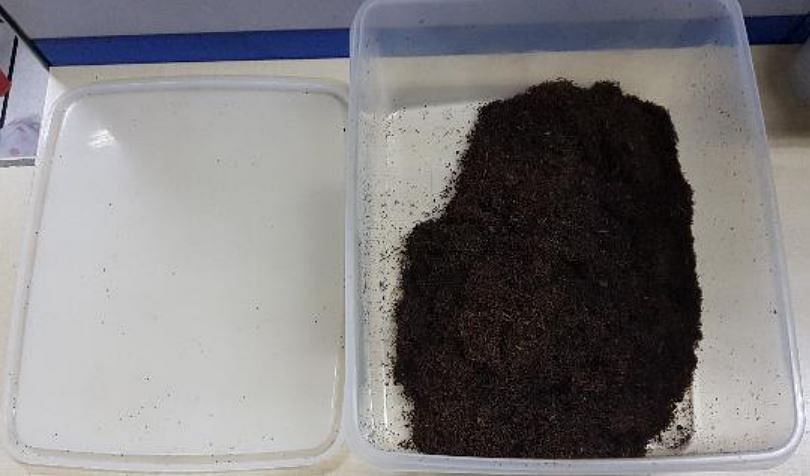SINGAPORE - A 63-year-old Singaporean man was arrested in a raid at a hotel in Geylang Road for trafficking new psychoactive substances (NPS), the Central Narcotics Bureau (CNB) said in a statement on Monday (Jan 8).
On Jan 4, CNB officers raided a hotel room in Geylang Road where the man was staying with his wife, a 49-year-old foreigner.
A container was found in the room with about 250g of vegetable matter, believed to be tobacco stained with NPS, a bottle of rubbing alcohol, numerous tobacco labels, a weighing scale, rolling papers and a printer.
The man adulterated or diluted the tobacco stained with NPS with other substances including thinner and contact cement, preliminary investigations found.
He then repacked the substance into plastic packets and disguised them as normal tobacco for sale. He sold each 20g packet, with butterfly prints on them, for $40.
Investigations into the man's drug activities are ongoing.
CNB reminded the public that abusing NPS can cause harm to one's mental and physical health.
"Abusing NPS can be as dangerous as consuming controlled drugs, if not more, as the chemical compounds added to the substance are unknown, and can cause serious health problems," Superintendent Cindy Goh, commanding officer at CNB's Enforcement G Division, told The Straits Times.
Chemical compounds added to the drugs are unknown and could cause serious health problems such as severe intoxication, seizures, renal failure and even death.
Those who ingest, inhale or consume thinner or contact cement may suffer poisoning.
NPSes refer to substances which produce similar effects as controlled drugs such as cannabis, cocaine, "ecstasy", methamphetamine or heroin.

CNB in May last year reclassified four new NPS as Class A controlled drugs, with a fifth NPS being newly added under the same category.
The move meant that the trafficking, manufacture, import, export, possession or consumption of the five NPSes will constitute an offence under the Misuse of Drugs Act.
CNB said in April last year that there was a rapid increase in the number, type and availability of NPSes worldwide.
There were at least 730 NPSes identified in 2016, according to a report released in November that year by the World Health Organisation Expert Committee on Drug Dependence.
Many of these substances have been reported to have no licit medical uses, and abuse of the substances has been linked to adverse physical and psychological reactions.
These include seizures, paranoia, hallucinations and even death.

